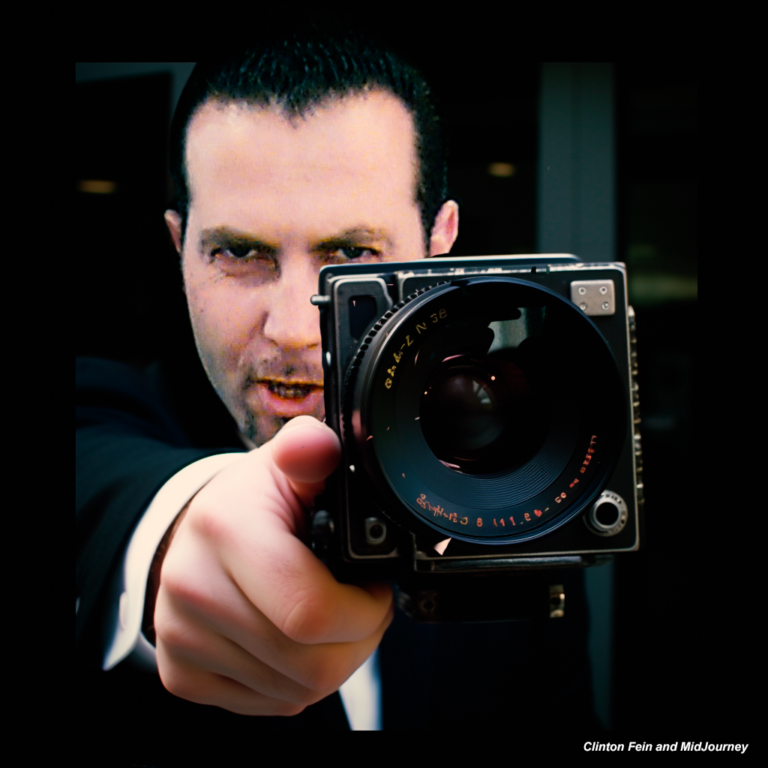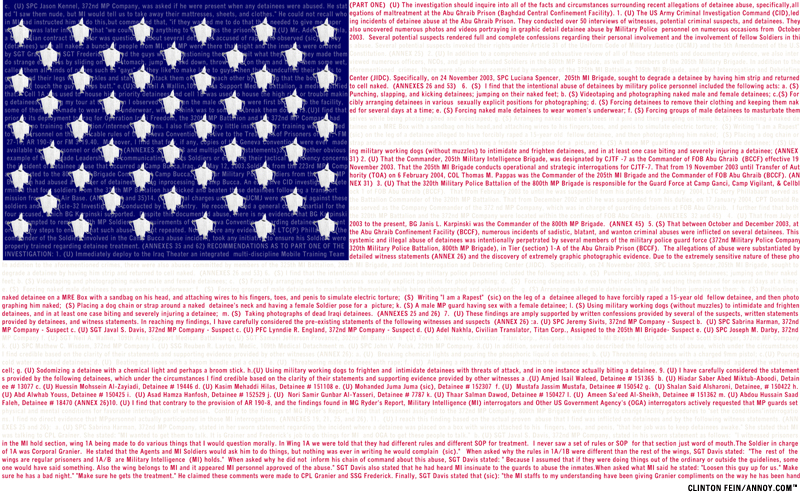Activism and Law
On January 30, 1997, Clinton Fein launched annoy.com, simultaneously filing a federal court action seeking declaratory and injunctive relief challenging the provisions of the Communications Decency Act (CDA) of 1996 that criminalized any “indecent” computer communication intended to “annoy” another person.
Much of the content on annoy.com was deliberately provocative and very often, somewhat crass, mocking the pretensions and piety of politicians and media alike.
The CDA’s assault on the First Amendment could not be countered with subtleties. So began a prolonged court battle against Janet Reno and the Clinton Administration that was finally determined by the Supreme Court of the United States of America.
Fein became the first South African born activist to challenge the United States government before the Supreme Court.
In June 1999 the United States government ordered ApolloMedia to disclose the identity of a user of Annoy.com’s popular electronic greeting card service. The service facilitated anonymous communications. The information they were seeking followed a similar attempt in April 1999 by the University of Houston, which tried unsuccessfully to obtain ApolloMedia records.
At the same time the court slapped a gag order on ApolloMedia and its President, Clinton Fein. They were ordered to refrain from discussing not only the content of the order with anyone until authorized by the court, but the very existence of the order and its application.
The unprecedented blanket gag order was unlimited in time and scope. Payback for Fein’s Supreme Court lawsuit against the United States, ApolloMedia v. Reno? One thing you definitely don’t want to be is the “sealed defendant” on the other side of a v. when the United States is the one filing the lawsuit.
Days before the release of Conduct Unbecoming, the Navy attempted to bar the use of a 1972 recruiting poster featuring the first African American used in a recruiting campaign. Servicemember Ed Graves had been discharged from the Navy a few years later for being gay. Refusing to allow the “Don’t Tell” provision of the new policy relating to gays and lesbians in the armed forces to extend to civilians as well, Clinton Fein, President of ApolloMedia, refused to pull the image.
ApolloMedia, represented by Michael Traynor at Cooley Godward, effectively established the de facto acknowledgment that First Amendment protections must be extended to CD-ROM publishers and, in so doing, helped shape the legal foundations for defining the content of interactive digital media.
Trademark Tussles
I walked into my office almost two years ago and auto-dialed my voicemail. “This is Maureen Dowd’s assistant,” shrieked someone on the other end.” Someone’s been sending obscene mail using Maureen’s name. You’d better stop it immediately. You can expect to hear from our lawyers.”
I stared at the phone, bemused. “Arrogant son-of-a bitch,” I thought, “I suppose ‘our’ would be The New York Times, and I wonder if the little cocksucker on the other end knows what the hell ‘obscene’ really means anyway.”
Figuring it was a ruse I ignored the message. But I was curious for a moment whether our website, annoy.com, had succeeded in doing what most others only dreamed of — pissing off Maureen Dowd. “Nah,” I decided. “If this were legitimate, I would have heard something a little more professional from The New York Times.” Returning from Pasqua (which was later bought by Starbucks), there was a blinking light on my phone. It was Maggie Drucker from the New York Times legal department requesting I call her back urgently.
In a landmark 7-2 decision written by Justice John Paul Stevens, the United States Supreme Court ruled that the CDA placed an “unacceptably heavy burden on protected speech” that “threaten[ed] to torch a large segment of the Internet community.” The court also wrote that “the interest in encouraging freedom of expression in a democratic society outweighs any theoretical but unproven benefit of censorship.”
The 20 plaintiffs in ACLU v. Reno represented a wide variety of online users, content providers, and Internet service providers, including Human Rights Watch, Planned Parenthood, EFF and EPIC (national cyberspace rights groups), Critical Path AIDS Project, Wildcat Press (a gay and lesbian publisher) and the ACLU itself.
On behalf of his company, ApolloMedia Corporation, Clinton Fein filed an Amicus Brief in this seminal First Amendment case.
The case of Aguilar v. Avis Rent-A-Car System, Inc. showcases the difficulties involved in preventing workplace harassment while preserving the right of free speech. It began when 17 Hispanic/Latino employees sued Avis for employment discrimination under a state law known as the Fair Employment and Housing Act because of racist epithets allegedly uttered by an Avis manager.
Learn why Clinton Fein fought on the opposite side of the America Civil Liberties Union (ACLU) in this case, after ACLU allowed political correctness to mar their vision pertaining to free speech.
In the wake of an egregious privacy violation by America Online…Annoy.com challenged the United States military by mocking its insidious Don’t Ask, Don’t Tell policy. And by using its own ammunition.
Annoy.com’s editor and publisher, Clinton Fein, published an image of a gay servicemember, who had essentially violated the policy by letting him know that he was gay. “Telling” him.
Fein removed any identifying information and challenged the military, taunting it to try and guess who it was.
Fein aimed to demonstrate what privacy meant and pretended that he, too was bound by the military policy, and WOULD NOT TELL. Because the military had a flawed understanding of First Amendment and privacy issues, and because as electronic publishers, Fein believed it was their duty to highlight the issues that impacted the industry.
In the wake of the September 11 attacks, Artforum, New York’s prestigious art magazine, pulled an advertisement for an Annoy.com exhibition.
The advertisement consisted of an image displaying a purse-lipped Rudy Giuliani sitting naked in a urine-filled glass box, referencing the technique used by artist Damien Hirst and part of an exhibit, Sensation, that resulted in the former mayor withholding funding from the Brooklyn Museum of Art.
Artforum would later give conflicting reasons for the decision that day veering between operational and ideological justifications.







